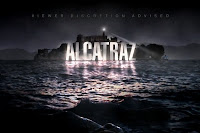Spark the idea. The lucky thing about this step is that it generally happens all on its own. If you force an idea, it will probably lack the originality you so desire. Allow your thoughts to flow freely and they will undoubtedly reward you with a unique concept.
Think it over. Add events, characters and other major pieces that contribute to the beginning of your writing adventure. Don’t over think and start butchering your idea apart. Remain permissive and accept what comes to you.
Apply the details. Incorporate your subplots and minor characters while expanding the idea. Note: Your outline will become cluttered, but that’s not a problem. Plenty of your content will ultimately be cut, so having additional ideas never hurts.
Research your field. No matter the topic or genre, be sure you have done your research. If you are hurling readers into the future (ie- Sci-Fi) it has to be believable to your otherwise primitive audience. Make sure your facts add up. Moreover, you should read similar stories to improve your understanding and expertise on the subject.
Time to write. Well, nearly. Set a schedule for writing and be sure it’s worked into your routine so your rough draft can actually be completed. This step is where many aspiring writers drop the ball. “It’s hard to find time,” and “I’m busy.” There’s no excuse. Your story won’t write itself. Find time.
That final step is certainly the hardest, but I’ll borrow a quote from my favorite little green man, Yoda. “Do, or do not. There is no try.” Using this template, you can surely START your novel and transform that spark of an idea into to a fully fledged rough draft.
View my archive and stay tuned for more on specific topics. If you’re looking for something but can’t find it, let me know and I’ll blog it!


